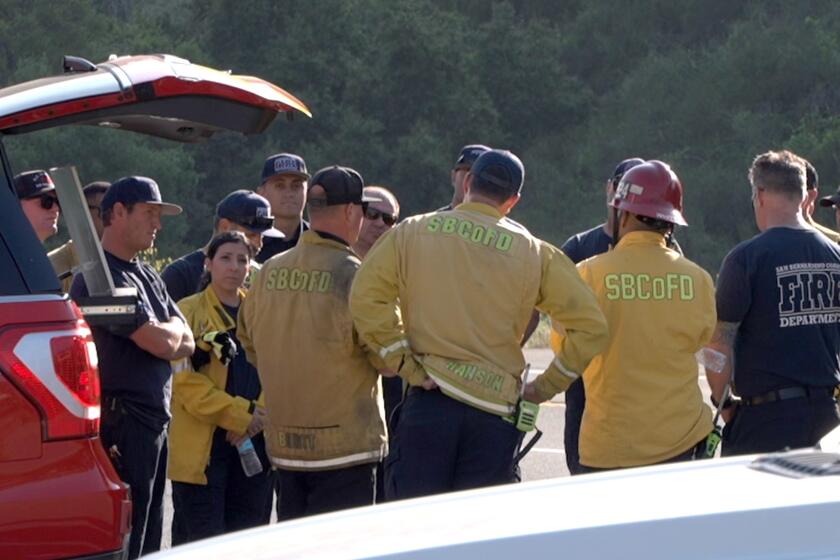Dealing With Vacation Emergencies
Dr. Jeffrey Fireman can always tell exactly when his pint-size patients and their families are on vacation or getting ready to leave for the holidays.
“The phones ring off the hook,” explained the Sherman Oaks pediatrician.
Every caller is frantic. It’s not that the illnesses are serious. It’s that long-made plans suddenly are going up in smoke: They’re set to leave “in an hour” for the airport but one of the kids has an earache; they’re a thousand miles away from home and the baby has a high fever; they’re visiting relatives in Los Angeles and the 10-year-old has a bad flu.
It’s no wonder. Kids often don’t get enough sleep when they’re away from home. They don’t eat right. They may have breathed stale airplane air for hours. There are, in fact, so many concerns about air quality on commercial flights that a bill has been introduced in Congress to improve it.
But many elements can contribute to ill health. It can be a change of climate or a holiday-induced frenetic schedule.
“No matter where you go, people are going to get sick,” Fireman said. “And kids are much more susceptible.”
It has even happened to him. Fireman recalls one particularly awful weekend in San Diego, where both of his kids came down with a stomach virus. The family finally packed up and headed home. “You can’t drag sick kids around,” Fireman said. “They’ll be miserable and so will you.”
Those are the times when all you can do is to make the best of a bad situation. I remember one ski trip to Taos, N.M., when my son Matt started complaining the first afternoon that his ear hurt. After I got him started on antibiotics--we were able to see a doctor at the ski resort--we spent the next day relaxing by the fire, playing games. Not all bad, in retrospect.
Other times, of course, the situation can be far more dire--and finding a competent doctor isn’t so easy. I know one Chicago child who became ill at a Club Med in Mexico and underwent emergency surgery at a nearby clinic. When her condition failed to improve, she was evacuated to a major hospital in Mexico City. Ultimately she recovered, but the family was out more than $20,000 in expenses.
“When someone tells you an operation is needed immediately and evacuation might be dangerous, it’s hard to know what to do,” said her father, who requested his name not be used.
The resort company said the matter is being investigated. “The highest priority of the club is the health and safety of its guests--especially children. We do everything possible to ensure that,” a Club Med spokesman said.
Wherever you are, when your child gets sick, Fireman recommends that you try to reach your family pediatrician. He or she may be able to coordinate treatment, perhaps with a colleague in the area you are visiting.
If you are overseas, call the American embassy or consulate. “Tap into the expatriate community. Ask the people at the embassy who they take their children to,” suggested Dr. Bradley Connor, a New York gastroenterologist and travel-medicine specialist.
Connor noted that while families are taking children to exotic locales--trekking in Nepal, beachcombing on tiny islands--they need to be aware of the risks involved. Children may not be fully immunized against diseases in developing countries.
Even if you’re just driving 200 miles from home, it’s a good idea to be prepared for emergencies. If your child has a chronic condition such as asthma or diabetes, get the name of a specialist and bring your child’s records.
And make sure you’ve got an ample supply of medication. I pack a kit recommended by the American Academy of Pediatrics, complete with acetaminophen, a thermometer (inevitably a fever will strike at 2 a.m. when drug stores are closed), bandages, antibiotic cream and tweezers (in case of splinters). The Academy of Pediatrics also suggests carrying syrup of ipecac, used in cases of poisoning to induce vomiting (administer only after consultating your physician or a poison control center).
Taking the Kids appears the first and third week of every month.
More to Read
Start your day right
Sign up for Essential California for news, features and recommendations from the L.A. Times and beyond in your inbox six days a week.
You may occasionally receive promotional content from the Los Angeles Times.






